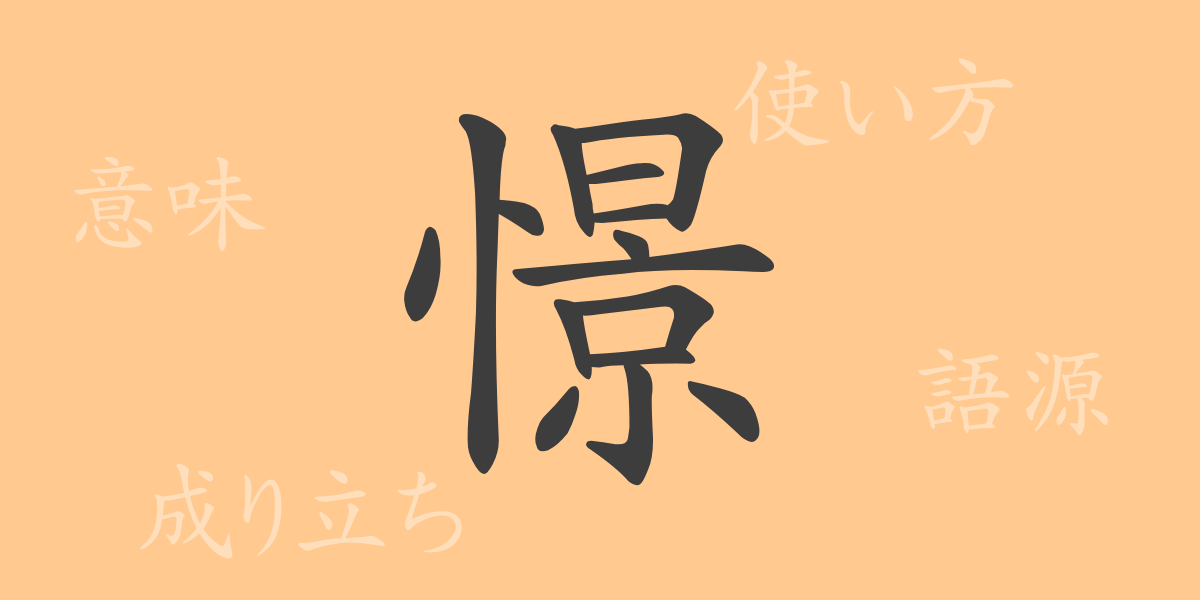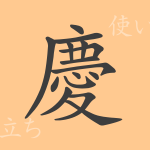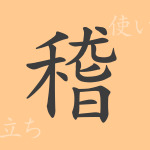Japanese written culture is profound, with kanji imbued with a multitude of emotions and meanings. This time, we spotlight the kanji “憬(けい, kei)” to explore its charm. Yearning or aspiring is a natural human emotion, and this kanji perfectly expresses that sentiment. In this article, we will delve into the origin, meaning, usage, and readings of “憬(けい, kei),” as well as expressions that incorporate this kanji.
Origin of 憬(けい, kei) (Etymology)
The kanji “憬(けい, kei)” is composed of the radical for emotion “心(こころ, kokoro)” and the character “景(けい, kei),” which means scene or view. The combination of “心(こころ, kokoro)” and “景(けい, kei)” signifies how external scenes or situations impact the heart or how the heart is moved by an ideal vision. Historically, “憬(けい, kei)” has been used to represent the internal emotions influenced by external views or idealized scenes within the mind.
Meaning and Usage of 憬(けい, kei)
“憬(けい, kei)” means “to yearn” or “to long for” and is used to express the emotion of being drawn towards ideals or goals. While it is not commonly used in daily conversation, it is suited for literary works and song lyrics to convey deep emotions. The objects of yearning can be people, ideal lifestyles, or goals to achieve, encompassing a broad range.
Readings, Stroke Count, and Radical of 憬(けい, kei)
Though “憬(けい, kei)” is not included in the list of 常用漢字 (jouyou kanji) and might be less common in everyday life, understanding its readings and structure is significant for a deeper appreciation of kanji.
- Readings: The on’yomi (Chinese reading) is “けい(kei).” It primarily has an on’yomi reading, and kun’yomi (Japanese readings) are not generally used.
- Stroke count: “憬(けい, kei)” consists of 17 strokes.
- Radical: The radical is “心(こころ, kokoro)” or “忄(りっしんべん, risshinben).”
Idioms, Expressions, and Proverbs Using 憬(けい, kei)
Expressions incorporating “憬(けい, kei)” are used in specific contexts to convey rich emotional expressions. Here are a few examples:
- 憬れ(あこがれ, akogare): Strong yearning or admiration for someone or something.
- 憬憬(けいけい, keikei): Intense longing or yearning.
- 遠憬(えんけい, enkei): Yearning for something distant, such as faraway places, times, or ideals.
Conclusion on 憬(けい, kei)
The kanji “憬(けい, kei)” beautifully represents the emotions of yearning and longing. By understanding its meanings, usage, and readings, we gain richer emotional expressions. Although “憬(けい, kei)” may not be frequently used in daily life, appreciating its delicate nuances in literature, poetry, and lyrics can deepen our understanding of the depth of language.

























